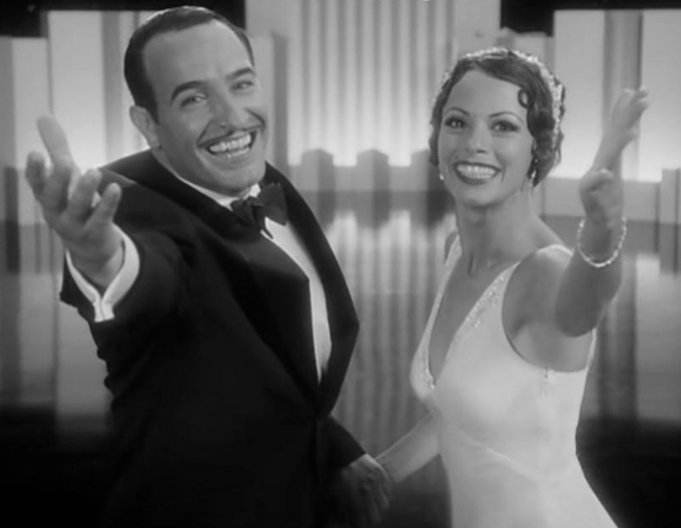The unprecedented Academy award victory capped a perfect storm of French culture, Hollywood nostalgia and the “Napoleonic” tactics of U.S. producer Harvey Weinstein.
The triumph of The Artist, the French black-and-white, almost completely silent film, is unprecedented — and almost sure to never be repeated.
The success of Michel Hazanavicius’ film lies in the fact that, for a moment, it rebuilt the Tower of Babel that the movie industry was before the invention of the talkies. Up until 1928, audiences and producers couldn’t care less about the accents and pronunciations of the actors. It seems that voters this year for the British Baftas, the Spanish Goya Awards, the French Césars and the Academy Awards were seduced by such a return to the golden age of cinema, showering The Artist with accolades. All capped Sunday night by five Oscars: best film (first-ever for a French movie), best director, best actor (Jean Dujardin, first-ever for a French actor), best score, best costumes.
But much more than just honoring a French film, it is a whole chapter of the history of cinema that was recognized, at a time when the movie industry is experiencing a most radical technological change. The 2012 Academy Awards ceremony was held in the Hollywood and Highland Center which, until 2011, was known as the Kodak Theatre. But since the Rochester-based film company recently went bankrupt, the theater was rechristened, reminding us how the photochemical process of duplication of reality has now become obsolete.
On the verge of crossing the final threshold into the fully digital age, professionals of the movie industry perhaps saw the crowning of The Artist as a way to bid adieu to perforated films, projectors and electromechanical cameras. Indeed this craze for all things vintage shows up in other works honored Sunday night, notably Martin Scorsese’s Hugo — although Scorsese used the latest digital technology, such as impressive computer-generated images and 3D cameras borrowed from James Cameron, to pay hommage to the pioneer French filmmaker George Méliès.
The Artist’s uniqueness makes it highly unlikely for a similar kind of film to be produced any time soon. Especially since the French movie was made in very particular circumstances. Its director, Michel Hazanavicius, likes to repeat that, apart from producer Thomas Langmann, “nobody wanted this film.”
The Artist was eventually financed by French television, both public (France 3) and private (Canal+), and by the producer himself, which is hardly common practice in France’s cinema industry.
The producer and the director then agreed to say au revoir to state support that filming in Europe would have allowed. Produced in the United States and shot in another language than French, the film lost its rights to several public grants from France.
Napoleonic campaign
This choice proved a wise one. In the United States, both the audience and movie professionals have enjoyed recognizing familiar faces among supporting actors (John Goodman, Penelope Miller), as well as seeing the names of colleagues in the movie’s credits.
Such circumstances differ so much from the way films are usually produced in France that it is unclear whether The Artist could become a French step in the door of the American movie industry.
Besides, one should not turn a blind eye on the role played by Harvey Weinstein, whose company distributed The Artist in the United States, in the success of the French film. Weinstein has the reputation of being able to carry any movie he chooses up to the Academy Awards. Thus in 2011, he served the Queen of England by helping Tom Hoope’s The King’s Speech get the better of David Fincher’s The Social Network.
This year, Weinstein worked for the benefit of the French Republic and orchestrated the release of The Artist with subtle tactical Napoleonic tactics: screened in only four cinemas in November 2011, the film is now going to be shown on some 2,000 screens. Meanwhile, he organized dozens of private projections to get the attention of all different kinds of movie professionals, from film critics to directors, the very people who get to vote throughout the awards season.
Such a slow pace allowed The Artist to avoid the American distrust towards French cultural products –a distrust that is still very much present, as tweets and posts from Hollywood professionals have shown throughout Oscar night. The author of the novel on which The Descendants is based tweeted: “The Artist people were in line in front of me, and now I smell like cigarettes and entitlement.”
But this distrust can also turn to admiration. Steven Spielberg has publicly stated that he was amazed to see that such a film could be produced, which he believes would have been impossible in Hollywood. The Artist’s actors and director are now under the wing of influential agents. All they have to do now is lose their French accent.
